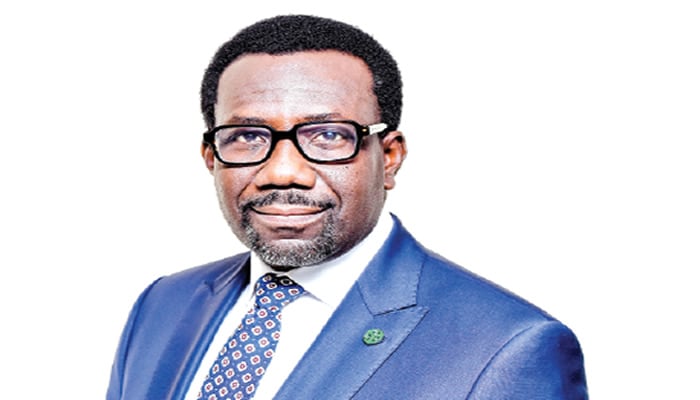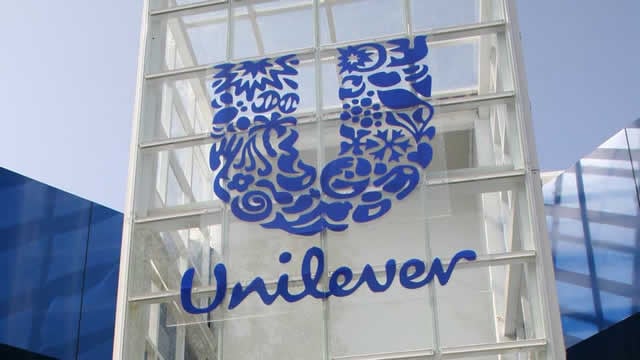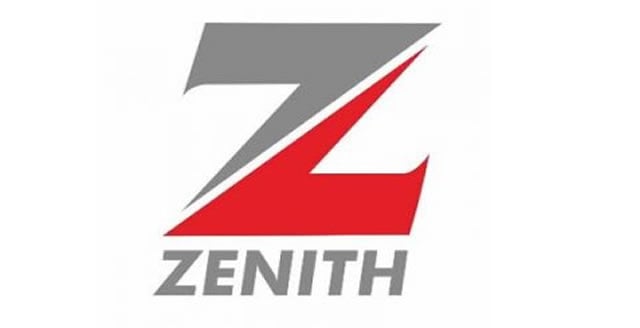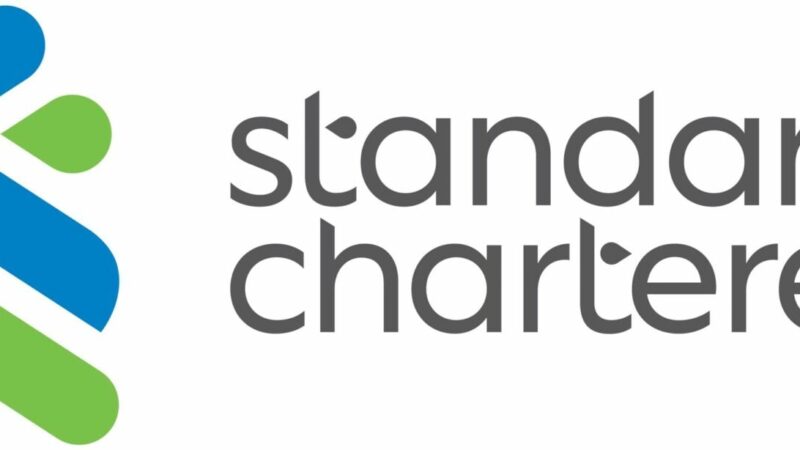Crude supply: N’Assembly probes $10bn oil theft, summons NNPC, Dangote

Between January and July 2024, Nigeria lost an average of 437,000 barrels of crude oil daily, worth about $10bn due to theft, vandalism, and other criminal activities, the House of Representatives declared on Thursday.
As a result, the House of Representatives Special Committee on Oil Theft and Losses commenced investigations into the illegal lifting of crude oil in Nigeria, as the Senate summoned the Nigerian National Petroleum Company Limited, Dangote Petroleum Refinery, and other major stakeholders in the oil sector for interrogation.
The Senate vowed to expose those responsible for economic sabotage and the importation of toxic fuel into the country.
At the House of Representatives, the event which was declared open by the Speaker, Tajudeen Abbas, was attended by the Chief of Defence Staff, Chief of Army Staff, Chief of Air Staff, and Inspector-General of Police, who were all represented by senior officers, accompanied by men drawn from the military formations.
The committee on oil theft was inaugurated on November 22, 2023, to determine the immediate and remote causes of oil theft, and recommend appropriate remedial measures, among others to the House.
Chaired by the member representing Doguwa.Tudun Wada Federal Constituency, Kano State, Alhassan Ado-Doguwa, the committee was also mandated to investigate oil theft in all ramifications, focusing on the actions of criminal gangs, militia groups, local communities, companies, and security agencies.
In his remarks at the event, Abbas, represented by Deputy Speaker, Benjamin Kalu, lamented the negative impact oil theft was having on the nation’s economy, even as he decried the daily losses of crude due to the activities of criminals.
He said, “The statistics on crude oil theft are very alarming and its negative impact on the economy is quite monumental. For instance, it is estimated that between January and July 2024, Nigeria lost an average of 437,000 barrels of crude oil per day due to theft, vandalism, and other criminal activities. At the current price of oil this translates to over $10bn over the same period.
“Apart from reduced government revenue to address the multi-faceted challenges of national development, other problems associated with crude oil theft include environmental degradation, heightened insecurity in the form of piracy, kidnapping, militancy and vandalism and the shut-down of production by many companies, among others.
“The reduction in government revenue has invariably been responsible for government borrowing to address budget deficits over the years.”
The Speaker called for a concerted effort to reverse the trend, saying, “If we must make progress as a nation, renew the hope of Nigerians, and meet their yearnings, this appalling situation cannot be allowed to continue unabated.”
He identified corruption as one of the factors working against sustainable development in the oil sector and pledged the readiness of the parliament to assist anti-graft agencies to rid the industry of various economic crimes.
“We are determined to strengthen the Economic and Financial Crimes Commission, Nigeria Extractive Industries Transparency Initiative, and other anti-corruption agencies to frontally combat corruption in the oil and gas sector,” he assured.
Also speaking, the Secretary to the Government of the Federation, George Akume, reiterated the commitment of the Federal Government to secure the nation’s oil and gas infrastructure, noting that in the past four years, over $1.5bn was spent in this regard.
Represented by the Permanent Secretary, General Services, Office of the SGF, Maurice Nnamdi, Akume said, “The government has invested considerable resources in combating this menace.
“Since 2020, expenditure aimed at addressing crude oil theft and securing our oil infrastructure has exceeded $1.5bn. These funds have been allocated towards enhancing surveillance capabilities, securing pipelines, and increasing the presence of law enforcement agencies in critical oil-producing areas.”
On his part, Ado-Doguwa promised on behalf of the committee to do a good job in the interest of Nigerians.
He said, “Our ultimate aim is to employ every legislative tool to unearth the root causes and immediate factors contributing to this crime, bring those complicit to justice and develop sustainable solutions to safeguard the integrity of our oil sector and promote national development.
“To ensure a thorough investigation, our methodology includes inviting memoranda and presentations from key stakeholders within the oil industry and security sector and engaging in further discussions with international and local oil companies, host community leaders, and relevant agencies.”
He highlighted some challenges to be addressed saying, “Our committee has noted several critical issues, including vessels transporting stolen crude oil undetected, collaboration among government and security agencies in illicit activities, and the inefficiencies of current measures to combat oil theft.
“We have identified that firepower and other weapons of engagement are inadequate compared to the number of security operatives drafted to combat armed crude oil thieves. The NNPC has reported 900 infractions on its pipelines, and delayed judicial processes have resulted in the abandonment of cases, allowing culprits to return to their criminal activities.
“In light of these findings, our committee has resolved to enact adequate legislation, including budget allocations to support security agencies, improve existing laws to combat crude oil theft, and collaborate with security agencies to prioritise the protection of national assets and critical infrastructure.
“We also emphasise the importance of involving indigenous youths in ownership initiatives and converting seized refineries for legitimate use rather than destroying them.”
Meanwhile, the immediate past Deputy Speaker, Idris Wase, has urged Ado-Doguwa to brace up for what will come his way, noting that the oil thieves will come after him.
Giving his remarks at the event, Wase reminded the Kano lawmaker that his job is a dangerous one.
“Mr Chairman, you are involved in doing a very dangerous business. It is more than dangerous. Don’t take it lightly. It is not going to be easy for you and the committee members because you are going to face people who are sabotaging Nigeria’s economy.
“In other climes, these people are supposed to be on the gallows and face the death penalty. They will go after you; they will come after your life but God will shield you. He will protect you,” he prayed.
NNPC, Dangote summoned
Also on Thursday, the Senate summoned major stakeholders in the petroleum sector for interrogation, vowing to expose those responsible for economic sabotage and the importation of toxic fuel into the country.
This was announced by the ‘Senate Ad-Hoc Committee to Investigate the Alleged Economic Sabotage in the Nigerian Petroleum Industry’ during a press conference in Abuja.
The 15-member committee, led by the Leader of the Senate, Senator Opeyemi Bamidele (APC Ekiti Central), addressed journalists on their assignment’s scope and readiness to unveil the alleged saboteurs.
Key stakeholders summoned to appear before the committee at a public hearing scheduled for September 10 to 12, 2024 include the Minister of State for Petroleum Resources, Senator Heineken Lokpobiri; Nigerian National Petroleum Company Limited, Central Bank of Nigeria, and the Nigeria Ports Authority.
Other entities summoned are the Nigerian Midstream and Downstream Petroleum Regulatory Authority, Nigerian Upstream Petroleum Regulatory Commission, Nigeria Customs Service, Nigerian Navy, International Oil Companies, Dangote Group, Capital Oil, and modular refineries.
The committee was established by the Senate in plenary on Wednesday, July 3, 2024, following a resolution adopted after an exhaustive debate on a motion sponsored by Senator Asuquo Ekpenyong (APC Cross River South) regarding the importation of hazardous products and substandard diesel into Nigeria.
In his speech at the press briefing, Senator Bamidele stated, “The rationale for this news conference is pure and simple. It mainly borders on the alleged economic sabotage in the petroleum industry, including the recent accusations and counter-accusations of the importation of petroleum products into the country.
“Given its consequences on our domestic economy, the Senate, under the able leadership of the President of the Senate, Senator Godswill Akpabio, constituted this 15-man Ad-hoc Committee to investigate Alleged Economic Sabotage in the Nigerian Petroleum Industry on July 3, 2024.”
He added, “Specifically, as mandated by the Senate, the committee will examine the pre-shipment and pre-discharge standard test parameters adopted by the Nigerian Midstream and Downstream Regulatory Authority to uncover any loopholes being exploited to import toxic cargoes into the country.
“We will determine the level of compliance of the NNPC’s Direct Sale and Direct Purchase arrangements in line with the provisions of the Petroleum Industry Act, including the extent of transparency and accountability.
“We will also scrutinise the activities of the Nigerian Midstream and Downstream Petroleum Regulatory Authority, including payments made to transporters in the last 10 years.”
Senator Bamidele continued, “We will inquire from the NNPC about the state of the 22 depots built by the defunct NNPC to eliminate road distribution of petroleum products.”
He said the Senate would engage with stakeholders within the oil and gas industry to identify gaps in regulating and strengthening surveillance and monitoring structures to detect violations of best practice standards in the importation of products before they enter the domestic supply chains.
“We will also engage with the NNPC to understand its determination and timelines for the start-up of government-funded oil refineries,” the Senator stated.
He added, “Furthermore, we will investigate how institutions across the importation and distribution chain failed to conduct quality sampling, shipped in products without auditing, and performed port validations by the Nigeria Customs Service, Nigerian Midstream and Downstream Petroleum Regulatory Authority, Nigerian Maritime Administration and Safety Agency, Standards Organisation of Nigeria, and Nigerian Ports Authority.”
The committee also resolved to carry out the investigations holistically and thoroughly, having written to all relevant stakeholders in the sector for submission of necessary documents and their appearance during the public hearing.
In their separate remarks at the press briefing, all committee members vowed to unravel the rot in the sector and declared that it would no longer be business as usual.
They emphasised that their integrity was at stake and there would be no room for sacred cows, stating that warrants of arrest would be issued for any head of an agency who refused to honor the invitation for appearance.







